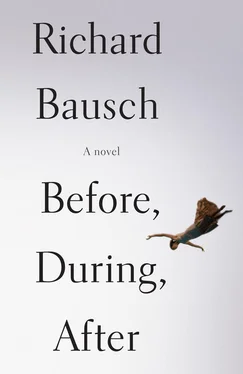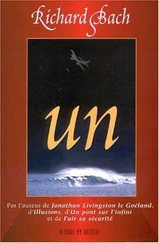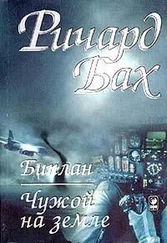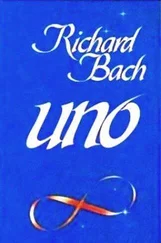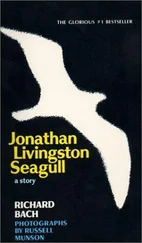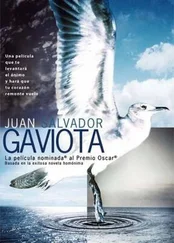On the contrary , It is impossible to suppose that one’s sense of the trouble is all the product of imagining, or even partially so, though the suspicion about the former lover is imbued with what I do imagine of my wife on the beach in Jamaica, with someone . But there is a definite change in her feeling toward me which is unacknowledged but demonstrated in ways that she answers for with her experience of 9/11. She herself acknowledges, at least tacitly, the unease; and the panics in the night, the anxiety and trembling, are all manifestations of the trouble. They are undeniable. Therefore, I have sufficient reason to seek an answer for myself beyond our unhappy silences and the sense, even as she seems all right, that something is haunting her. It is a reasonable thing to expect a man to seek some communication with the person she was with in Jamaica, Constance, and, if my suspicions are shown to be correct, with the someone else my wife saw there.
I answer that , it makes no sense to look for something that could be purely in the realm of imagining, especially if one has to confront a person who showed such clear sign of being part of the conspiracy of silence. And it would be something bordering on psychotic to seek some sort of confrontation with the photographer, because he is only one possibility, and it should be simple enough to rule him out: one has only to find out where he was during that period in the middle of September. Lacking him as the possible other the whole question of distrust deepens further. This is a sufficient answer to the Objections .
8
That evening, Iris came over to the house for dinner, as planned. She brought Liam Adams with her. She introduced him by saying, “This is my friend from the mayor’s office.” Faulk simply stared at them, as if waiting for some kind of punch line.
Iris said, “I guess Natasha hasn’t talked to you since you got home.”
For Faulk, it was another aspect of what he did not want to think about: his wife’s previous life. The fact that it was from her childhood meant nothing against the rush of feeling that it was a further complication, and it made him irritable. He offered wine to them both. Natasha, returning from the store with a bag of groceries, said, “Oh, I’m sorry. I thought I’d be back before you got here.” She looked at Mr. Adams and smiled.
Apparently he had come calling shortly after Natasha dropped Iris off from their lunch. Natasha put the groceries away and started heating oil to fry chicken. Faulk had poured two glasses of Rioja. Liam Adams drank his rather quickly and then spoke about taking the liberty of having another glass. “If no one minds,” he said, pouring it full.
Natasha saw this, and marked it, and then went about making the dinner while the three of them talked in the other room.
They discussed the Afghan war for a while, and then Iris said, “Let’s change the subject. I’m so sick of the whole awful thing.”
Adams had emptied the first bottle of wine, so Faulk opened another. The new wine was a Côtes-du-Rhone, and Adams talked about how this wine seemed lighter. Natasha made the dinner with help from Iris while the two men went on about Faulk’s having left the priesthood and about Adams’s deciding to move back to Memphis, where he was born and raised. He reminisced about Memphis in the old days, when he was a boy and it had been a segregated city. “Beale Street then was nothing like it is now, let me tell you.”
The women set the dinner out, and they all sat down to eat. Adams kept pouring wine for himself and Faulk until the second bottle was empty, and Faulk took the last bottle of red that he had, a Brunello, and opened it, feeling a little drunk himself, and watching Adams fill his glass again. Adams drank most of the glass and then poured more, talking too loud about deciding to come home and then taking five years to do it.
This was the third time he had said exactly that. Faulk looked at Iris, who looked back at him with a helpless frown. Natasha had eaten one plate and then taken seconds, surprised at her own appetite. She stood and began taking away the dishes. Iris helped her. They also exchanged glances. Iris shook her head.
“Guess I’ll wait to tell him about the baby,” Natasha told her.
“Well, till we’re gone, anyway.”
She went on clearing the table and taking the empty wine bottles. Faulk saw the sour, down-turning expression around her mouth and had the thought that a little hospitality toward Adams was not too much to ask; that it wouldn’t cost her so much to be a little forbearing. He did not examine the feeling, though some part of him was vaguely aware of the resentment in it. Adams was loud, drunk, and dull as he tried once more to describe all the processes of thought that had led him to decide about moving home. And then he was rattling on again about New York and the attacks. “Nobody knew how go about an’thing.” The white beard was ruffled now and wine-stained around the mouth and down to the chin.
“I felt like a refugee in a war,” Faulk said to him.
“Tha’s right.”
“Right.”
“We all were. An’ strange things. Poor dumb guy — cheat’n on ez wife. S’posed to be at the office. Calls’er, tells’er he’s at work. Eighty-sixth floor. Building’s already c’l apsed . Frien’ amine’s uncle, died that morning, in’ a hosp-eh’tal. Natur’l causes.”
The two women cleared everything away and started doing the dishes. Natasha had to go sit down, and she moved past the men to get into the living room. Her grandmother finished the dishes, standing against the sink with the cane resting on it at her side. Then she made a cup of coffee and went in to where Natasha was.
“Awf’l,” Liam Adams said, as if proclaiming something to a crowd. “So many refugees.”
“All of us.” Faulk was drunk, and did not quite know how drunk, and now he felt that he had made a wonderful new friend. He went into the refrigerator and found a half-gallon bottle of Pinot Grigio that his wife had just brought home from the grocery store. He opened it. “Mind if we switch to white?”
“Love th’ whites.”
He poured both glasses full, ignoring the little pocket of red in each one. The white wine was therefore faintly tinted pink. They drank, now, for some reason, with excessive politeness, setting the glasses down with great care.
Natasha murmured to her grandmother, “Did he drive to your house?”
Iris nodded. “He had a glass of wine at my house before we came over here.”
“What will you do?”
“Maybe he’ll stay here.”
“Oh, please, no. Where would we put him?”
Faulk sat with the side of his head resting against his own palm, that elbow on the table, looking into the living room where the two women were seated side by side on the couch, talking in low tones. Adams was holding forth. “There’s no hope f’rus win this one.” He belched low, tucking his chin, the stained white beard. “R’lidgus wars. Las’ one las-ed five hun’ed years. No fight for freed’m anymore. Bullshit.” He lifted his glass, which was now empty, and seeing this, he reached for the bottle. As he poured he went on. “Fight for oil. Tha’s what th’ fuck it is. Scuse me.” He belched. “Oil. Tha’s all.”
“Right,” Faulk told him, though now in the back of his mind he was beginning to worry about where this night would end. Adams was in far worse shape.
“Th’ buildings — terr’bull. Jus’ gone. I din’ see ’em come down.” He started crying now, without sound, sitting there slumped back in the chair, looking at nothing. “Both of ’em. Gone. People dyin’ of anthrax. Boys dyin’ oveh there.”
“It’s late,” Faulk said, because nothing else came to mind.
Читать дальше
